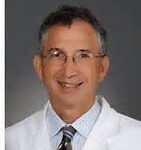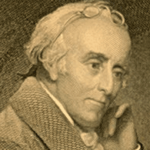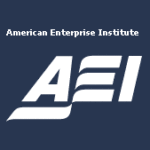The Doctor’s Lounge Radio — INTERVIEW with Sally Pipes of the Pacific Research Institute
02/11/16 Guest Sally Pipes. Sally Pipes steps into the Doctor's Lounge to discuss with Dr. Hal Scherz the top healthcare issues we will face in 2016.
02/11/16 Guest Sally Pipes. Sally Pipes steps into the Doctor's Lounge to discuss with Dr. Hal Scherz the top healthcare issues we will face in 2016.
Please join us for lunch and refreshments as BRI officers present the various 2016 presidential candidates' healthcare policies and plans. A Q&A and small group discussion will follow.

Forty-five (45) students joined us for MCW's BRI/AMA joint Journal Club's "Monthly Meeting of the Minds." This month's theme was "The Basics of Healthcare Finances Every Doctor Should Know."
During February's BRI/AMA Journal Club lunch talk we tailored our presentation specifically for an area many medical students don't learn about. While medical students learn the ins and outs of scientific medicine, they are given little to no education on the financial aspects involved with medicine. Therefore, BRI at MCW decided to give a "crash course" presentation outlining all of the various payment options and plans in the American healthcare system today. Lunch was provided to those who attended.
02/25/16 Guest Dr. Richard Armstrong. Dr. Richard Armstrong joins Dr. Scherz and Dr. Koriwchak, D4PC Foundation doctors in the Doctor's Lounge to discuss the top issues in healthcare.
BRI sponsored a table, making many contacts and gaining an inquiry into a 2nd international chapter in Tel Aviv, Israel.
Please join us for this FREE event. The BRI chapter at the University of Colorado-Anschutz Medical Campus is hosting a lively, informative and important debate on the future of Colorado healthcare. At issue is adopting "Amendment 69," or Colorado Care, a proposition to have a state-run taxpayer funded healthcare system in Colorado.
We will have a 30-minute lunch and information session on Amendment 69, followed by 60-minutes of two-on-two Oxford Union style debate.
Marian University's BRI chapter cordially invites you to attend a lecture with Dr. Jason Eberl, a Marian University faculty member. Dr. Eberl will be making the case for a natural right to health and healthcare—opening discussion of the question to what extent the state, versus society in general, is the guarantor of this right.
From Dr. Eberl's webpage:
"I primarily conduct research concerning the implications of Thomas Aquinas's metaphysical account of human personhood and natural law ethics to various issues in bioethics. I also have interests in philosophy of religion, virtue ethics, and philosophy of mind. I graduated with my Ph.D. from Saint Louis University....more
Please RSVP to ensure enough food and refreshments for all.
Note: This event takes place in the eastern time zone. Food will be provided. RSVPs are greatly appreciated. The Theater will be full!
In partnership with the Arnold P. Gold Foundation, Marian University center for Organizational Ethics, and the Marian University office of Institutional Advancement, BRI student leaders from Marian University are proud to present a once-in-a-lifetime opportunity to hear the celebrated Dr. Patch Adams. Dr. Adams, noted doctor (he got into medical school without an undergraduate degree!), comedian, humanitarian, social activist, and subject of the film Patch Adams with Robin Williams, will speak about himself, the doctor-patient relationship, and how he believes the doctor-patient relationship should be experienced.
 Patch Adams speaks at a co-sponsored BRI event before over 500 people.
Patch Adams speaks at a co-sponsored BRI event before over 500 people.
 Dr. David Ansell on healthcare policy and the patient-provider relationship
Dr. David Ansell on healthcare policy and the patient-provider relationship
Join the Chicago Medical School BRI chapter for a lunch lecture with David A. Ansell, MD, MPH. Dr. Ansell draws upon his considerable experience in urban healthcare to illustrate the ways in which US health policy affects the relationship healthcare providers have with their patients. His talk will hopefully open the eyes of future healthcare providers to the problems facing our health system today, and provide them a base from which they can find their own voice in addressing those issues as their careers progress.
 BRI is proud to be partnering with American Enterprise Institute to bring you
BRI is proud to be partnering with American Enterprise Institute to bring you 
Why did you decide to become a doctor?
Do you say that you want to help people in a meaningful way that also is personally challenging? We think that's a great description of what it means to practice medicine. What can be better than the excitement of really cool applied science, the challenge of life-long professional growth (there's always something new to learn), and—most importantly, the privilege of caring for people through some of the most joyous and tragic events of their lives?
As doctors, we are privy to life's most powerful and intimate moments . . . watching a child be born . . . holding the hand of a dying patient . . . listening to the struggles of living with a chronic disease . . . the look of relief and gratitude after a successful surgery.
And let's not forget the incredible experience of working as part of dedicated team — in our offices, hospitals, charity clinics, and medical missions.
Yes, being a doctor in America is a great vocation.
Yet, American medicine is at a crossroads. Concern over access, quality, and affordability have many turning to government to supply solutions — at the risk of impeding innovation, burying physicians in burdensome regulations, ratcheting back pay, interjecting bureaucratic mandates that get between doctors and their patients, and reducing a doctor's ability to practice medicine according to his or her own experience, judgement and skills.
At BRI, we declare that there exists a need to reinvent physician leadership in an age of teamwork. There is an urgency for doctors to be stronger, more vocal leaders, not only among medical colleagues, but in the wider community. There's a very real need for a new kind of doctor, as a leader and advocate for those who have been priced out of affordable medical care. That means physicians need to understand economics to be able to advocate effectively for policies that produce lasting improvements for everyone, not ones that simply make us "feel good."
This will require a new kind of doctor—one who not only practices medical excellence, but who also adds a voice of leadership so desperately needed in today's healthcare climate.
That's what this year's conference is all about: Earned leadership, with non-paternalistic, informed compassion and effective advocacy.
Arguably the most important question in America's current debate about healthcare is: Who can deliver the best results for the most people? A free market, or government ("single payer")? Is there any common ground between these two greatly differing views?
BRI provides educational debates, lectures, events and resources supporting our mission to promote healthcare solutions that protect the doctor-patient relationships the primary means of delivering quality medical care. This debate at GWU is an important part of that mission, to expand discussion, education, and information about all sides of healthcare issues.
George Washington University is the Host Chapter for BRI's 4th annual leadership conference and is a proud partner with BRI in producing this debate. For the 4th consecutive year, a Friday night debate has been one of the most anticipated parts of BRI's Leadership Conference, and it is the only part of the conference open to the public.
We look forward to seeing you & thank you for being part of this important part of our healthcare future.
Beth Haynes, MD, Executive Director of the Benjamin Rush Institute, joins Dr. Michael Koriwchak in the Doctor's Lounge to respond to some of the problems identified and critique the solutions.